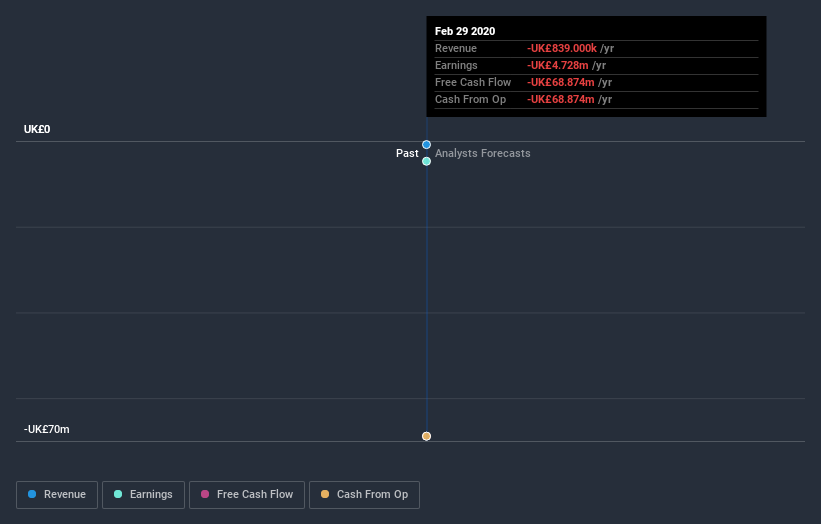What Kind Of Shareholders Hold The Majority In JPMorgan Global Core Real Assets Limited's (LON:JARA) Shares?

A look at the shareholders of JPMorgan Global Core Real Assets Limited (LON:JARA) can tell us which group is most powerful. Large companies usually have institutions as shareholders, and we usually see insiders owning shares in smaller companies. Companies that used to be publicly owned tend to have lower insider ownership.
With a market capitalization of UK£230m, JPMorgan Global Core Real Assets is a small cap stock, so it might not be well known by many institutional investors. Taking a look at our data on the ownership groups (below), it seems that institutional investors have bought into the company. Let's delve deeper into each type of owner, to discover more about JPMorgan Global Core Real Assets.
Check out our latest analysis for JPMorgan Global Core Real Assets
What Does The Institutional Ownership Tell Us About JPMorgan Global Core Real Assets?
Institutions typically measure themselves against a benchmark when reporting to their own investors, so they often become more enthusiastic about a stock once it's included in a major index. We would expect most companies to have some institutions on the register, especially if they are growing.
As you can see, institutional investors have a fair amount of stake in JPMorgan Global Core Real Assets. This suggests some credibility amongst professional investors. But we can't rely on that fact alone since institutions make bad investments sometimes, just like everyone does. If multiple institutions change their view on a stock at the same time, you could see the share price drop fast. It's therefore worth looking at JPMorgan Global Core Real Assets' earnings history below. Of course, the future is what really matters.
JPMorgan Global Core Real Assets is not owned by hedge funds. Quilter Cheviot Limited is currently the company's largest shareholder with 18% of shares outstanding. For context, the second largest shareholder holds about 4.9% of the shares outstanding, followed by an ownership of 4.8% by the third-largest shareholder.
A deeper look at our ownership data shows that the top 15 shareholders collectively hold less than half of the register, suggesting a large group of small holders where no single shareholder has a majority.
Researching institutional ownership is a good way to gauge and filter a stock's expected performance. The same can be achieved by studying analyst sentiments. As far I can tell there isn't analyst coverage of the company, so it is probably flying under the radar.
Insider Ownership Of JPMorgan Global Core Real Assets
The definition of company insiders can be subjective and does vary between jurisdictions. Our data reflects individual insiders, capturing board members at the very least. Company management run the business, but the CEO will answer to the board, even if he or she is a member of it.
Insider ownership is positive when it signals leadership are thinking like the true owners of the company. However, high insider ownership can also give immense power to a small group within the company. This can be negative in some circumstances.
Our most recent data indicates that insiders own less than 1% of JPMorgan Global Core Real Assets Limited. It seems the board members have no more than UK£314k worth of shares in the UK£230m company. Many investors in smaller companies prefer to see the board more heavily invested. You can click here to see if those insiders have been buying or selling.
General Public Ownership
The general public, mostly retail investors, hold a substantial 60% stake in JPMorgan Global Core Real Assets, suggesting it is a fairly popular stock. This size of ownership gives retail investors collective power. They can and probably do influence decisions on executive compensation, dividend policies and proposed business acquisitions.
Next Steps:
It's always worth thinking about the different groups who own shares in a company. But to understand JPMorgan Global Core Real Assets better, we need to consider many other factors. For instance, we've identified 3 warning signs for JPMorgan Global Core Real Assets (1 can't be ignored) that you should be aware of.
Of course, you might find a fantastic investment by looking elsewhere. So take a peek at this free list of interesting companies.
NB: Figures in this article are calculated using data from the last twelve months, which refer to the 12-month period ending on the last date of the month the financial statement is dated. This may not be consistent with full year annual report figures.
This article by Simply Wall St is general in nature. It does not constitute a recommendation to buy or sell any stock, and does not take account of your objectives, or your financial situation. We aim to bring you long-term focused analysis driven by fundamental data. Note that our analysis may not factor in the latest price-sensitive company announcements or qualitative material. Simply Wall St has no position in any stocks mentioned.
Have feedback on this article? Concerned about the content? Get in touch with us directly. Alternatively, email editorial-team@simplywallst.com.



